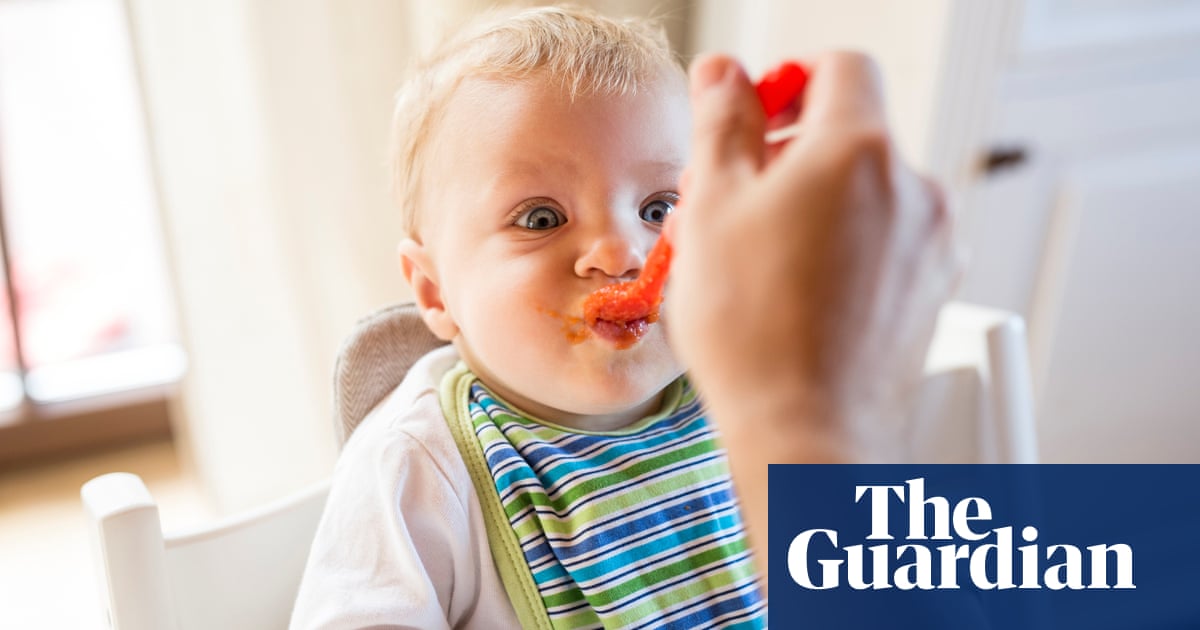[ad_1]
Not a single infant or toddler food product stocked in Australian supermarkets meets standards set by the World Health Organization, a study has found.
More than three-quarters of the products failed overall nutritional requirements, while all items flunked the promotional requirements, research led by the George Institute for Global Health found.
“These findings should serve as an alarm bell for policymakers in Australia,” the researchers warned. Stricter regulation was urgently needed, they said, to improve the nutritional quality of infant and toddler foods and to stop deceptive labelling misleading parents into believing the products are healthy.
The paper comes the same month as the federal government begins public consultation to improve commercially produced infant and toddler foods.
Published in Maternal and Child Nutrition on Tuesday, the study assessed more than 300 foods marketed for six-month-old to three-year-old children and sold in Australian supermarkets against the WHO Regional Office for Europe’s nutrient and promotion profile model. The model is considered a gold standard benchmark to ensure products for infants and young children are of high nutritional quality and promoted appropriately.
The study was based on the George Institute’s FoodSwitch database, which represents more than 90% of the Australian packaged food market.
Out of 395 products in the infant and toddler food category in the database, 86 were infant formula and excluded from analysis. The remaining 309 products were assessed based on the WHO model.
Only about a fifth of the products (22%) met all criteria for nutrient composition, with most failing on sugar and calorie content.
None met the promotional requirements, which prohibits all claims except those related to allergens, religious claims and vegetarian/vegan claims.
Every product had at least one claim on its pack prohibited under the WHO model, such as “free from colours and flavours”, “organic” and “no added sugar”. On average, there were 6.7 claims displayed, while one product made 21 different claims.
Dr Daisy Coyle, a dietitian and author of the paper, said the WHO model doesn’t allow these claims on infant food because, based on previous research, it is “particularly deceptive and influential on what parents and carers think are a healthy option for children”.
Highlighting what’s not in a product often prevents parents flipping over the product to see its true nutritional content, Coyle said. Even if a product says no added sugar, it can still contain processed fruit sugars in pastes, gels and purees.
The research found one in three products were particularly deceiving, with the name of the product failing to match the ingredients list. Coyle said a product called “broccoli, spinach and apple” might lead parents to believe it was predominantly made of vegetables but could actually be 70% apple puree.
Children are inclined to prefer sweet options and food manufacturers often add fruits to sweeten a product, even savoury products, because they want kids to enjoy them and parents to come back for more, Coyle said.
This is particularly problematic because “at that age kids are developing taste and food preferences that set them up for life”, she said.
Squeeze pouches represented more than 50% of all products available on supermarket shelves but only half met the WHO model’s sugar requirement, the report found.
Dr Catharine Fleming, a lecturer in public health and specialist in paediatric nutrition at Western Sydney University, called the findings “concerning”.
Parents were struggling to make good food choices for their children during what is “a critical window of growth and development” because of “the high level of misinformation” contained on packaging claims, she said.
The researchers said their paper outlines some key areas that need to be addressed as part of future policies.
They said more research should be carried out on the health risks associated with ultra‐processed foods.
Recent research in the US found, of all the food categories, baby foods have had the largest increase for proportion of products containing industrial additives.
[ad_2]
Source link



